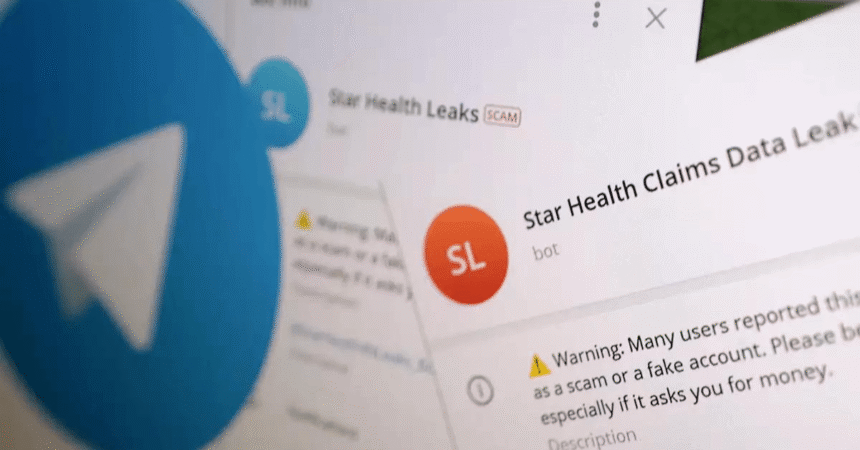In recent weeks, a significant data breach involving Star Health and Allied Insurance has exposed sensitive information of millions of customers, raising urgent questions about cybersecurity in today’s digital age. The breach, facilitated through Telegram chatbots, highlights vulnerabilities in data protection mechanisms and underscores the risks associated with the growing trend of digitalization in various sectors, including health insurance.
The Data Breach: An Overview
Star Health, a prominent player in the Indian insurance market with a market capitalization exceeding $4 billion, recently became a victim of a cyberattack that compromised customer data. Reports surfaced indicating that sensitive information, including medical records, was made accessible through chatbots on Telegram, a popular messaging platform. This alarming incident not only puts the personal information of millions at risk but also calls into question the integrity of data protection practices within the organization.
The breach was first uncovered by a UK-based security researcher, Jason Parker, who discovered that chatbots, allegedly created by a user known as “xenZen,” were offering stolen data for sale. Parker communicated with the hacker, who claimed to have access to 7.24 terabytes of data related to over 31 million customers of Star Health. Samples of this data were available for free via the chatbots, while bulk information could be purchased.
Nature of the Exposed Data
The data that has been leaked through these Telegram chatbots includes highly sensitive personal information such as names, phone numbers, addresses, tax identification details, medical diagnoses, and even copies of identity cards. This level of detail poses significant risks for identity theft, fraud, and other malicious activities.
The leaked documents reportedly included policy and claims information, some of which date as recently as July 2024. For example, medical records associated with a one-year-old policyholder’s treatment included sensitive details such as blood test results and medical history. In another case, ultrasound imaging test results along with personal identification were made public, alarming the affected individuals who had not been informed of any breach by Star Health.
The Role of Telegram in the Breach
Telegram, which boasts over 900 million active users globally, has become a double-edged sword in terms of cybersecurity. While the platform offers robust messaging capabilities and privacy features, it has also been increasingly exploited by cybercriminals for illicit activities. The ease with which users can create chatbots has facilitated the distribution of stolen data, making it a popular choice among hackers.
The recent incident involving Star Health underscores the challenges faced by Telegram in moderating content and preventing misuse of its platform. The platform has faced scrutiny over its ability to control criminal activities and ensure user safety. Despite Telegram’s claims that sharing private information is prohibited and that it actively removes harmful content, the reality is that the decentralized nature of the platform makes it difficult to fully eliminate such risks.
Legal and Ethical Considerations
The implications of this data breach are profound, raising legal and ethical questions about data protection in India. The unauthorized acquisition and dissemination of personal data are violations of several laws, including the Information Technology Act, which governs electronic data protection in the country.
Star Health’s swift response to report the incident to the cybercrime department of Tamil Nadu and the federal cybersecurity agency CERT-In reflects an awareness of the legal repercussions associated with data breaches. The insurer’s management publicly assured customers that their privacy and security are of paramount importance, but the breach has undoubtedly shaken public confidence.
Furthermore, the ethical considerations surrounding data protection practices come to the forefront. The failure to inform affected customers about the breach is a significant oversight that could lead to a breakdown of trust between the company and its clients. Transparency and timely communication are crucial in maintaining customer relationships, especially in an era where data security is paramount.
Customer Reactions and Concerns
For customers whose data has been compromised, the breach represents a serious violation of trust. Individuals like Sandeep TS and Pankaj Subhash Malhotra expressed deep concern upon discovering that their sensitive information had been leaked without their knowledge. Such incidents can lead to long-lasting impacts on individuals, including anxiety over identity theft and financial fraud.
The emotional and psychological toll of data breaches cannot be understated. Affected individuals may experience a range of feelings, from anger and frustration to fear of potential misuse of their information. The lack of communication from Star Health further exacerbates these concerns, as customers are left in the dark about the extent of the breach and the measures being taken to mitigate the risks.
The Bigger Picture: A Growing Cybersecurity Threat
The data breach at Star Health is part of a larger trend of increasing cybercrime globally. According to research conducted by NordVPN, India has become a hotspot for data breaches, with 12% of victims affected by cybercriminals selling sensitive information via chatbots. The report indicates that the growing reliance on digital platforms has made individuals and organizations more vulnerable to cyberattacks.
As technology continues to evolve, so do the tactics employed by cybercriminals. The rise of artificial intelligence and machine learning has created new opportunities for hackers to exploit vulnerabilities, making it imperative for organizations to adopt comprehensive cybersecurity measures.
Recommendations for Organizations
To mitigate the risk of data breaches and protect sensitive information, organizations must implement several best practices:
- Invest in Cybersecurity Infrastructure: Organizations should regularly update their cybersecurity measures to counteract emerging threats. This includes deploying advanced technologies such as AI and machine learning for real-time monitoring of suspicious activities.
- Conduct Regular Security Audits: Organizations should perform regular audits of their data protection practices to identify vulnerabilities. Penetration testing and simulated phishing attacks can provide valuable insights into potential weaknesses in security systems.
- Enhance Employee Training: A significant portion of data breaches occur due to human error. Regular training sessions can empower employees to recognize and respond to potential security threats, creating a more security-conscious workplace culture.
- Establish Clear Incident Response Plans: Organizations should develop comprehensive incident response plans that outline procedures to follow in the event of a data breach. These plans should include communication strategies to inform affected customers promptly.
- Promote Transparency with Customers: Building trust with customers requires transparent communication regarding data protection practices. Keeping customers informed about how their data is collected, stored, and used can enhance their confidence in the organization’s commitment to privacy.
The Future of Cybersecurity in India
As the digital landscape continues to evolve, the need for robust cybersecurity measures becomes increasingly critical. The incident involving Star Health serves as a stark reminder that organizations must prioritize data protection to safeguard customer information.
The Indian government has also recognized the importance of cybersecurity in protecting sensitive information. Initiatives aimed at strengthening cybersecurity infrastructure, enhancing public awareness, and promoting collaboration between the public and private sectors are essential for combating cybercrime effectively.
Conclusion
The data breach at Star Health highlights the pressing need for improved cybersecurity measures in an increasingly digitized world. As organizations and consumers alike navigate the complexities of data protection, it is vital to recognize the risks associated with digital interactions and take proactive steps to mitigate them.
For organizations, this incident serves as a wake-up call to reassess their cybersecurity strategies and prioritize the protection of sensitive customer information. For consumers, it underscores the importance of remaining vigilant and informed about how their personal data is managed and secured.
The collaborative efforts of governments, organizations, and individuals will be crucial in building a more secure digital future. Only through a collective commitment to data protection can we hope to mitigate the risks posed by cybercrime and protect the privacy of individuals in an increasingly interconnected world.
#DataBreach #Cybersecurity #StarHealth #Telegram #DataProtection #HealthInsurance #CyberCrime #India #InformationSecurity #Privacy







